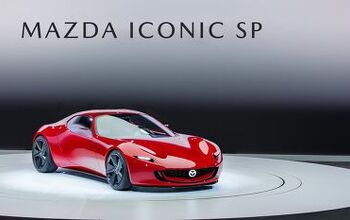Case Study in Public Relations: Volkswagen's Diesel Crisis

On Monday, Volkswagen CEO Matthias Müller told NPR that the automaker didn’t lie in 2014 when regulators asked the automaker why its cars were polluting way more than advertised:
“We didn’t lie. We didn’t understand the question first. And then we worked since 2014 to solve the problem.”
Immediately realizing that wasn’t the thing to say, Müller asked NPR for a do-over Monday, which he got:
“Yeah, the situation is, first of all we fully accept the violation. There is no doubt about it. Second, we have to apologize on behalf of Volkswagen for that situation we have created in front of customers, in front of dealers and, of course, to the authorities. …”
Which sounds much more conciliatory, but doesn’t necessarily contradict his earlier statement. So, yeah, this isn’t good.
So what are we supposed to believe?
First, we know that Volkswagen has a tendency to say some weird stuff when approached with the cold-stone fact that their cars aren’t exactly as advertised. From Nov. 2:
“(Volkswagen) wishes to emphasize that no software has been installed in the 3-liter V6 diesel power units to alter emissions characteristics in a forbidden manner.”
And now, Müller’s NPR statement that he was a little confused because of “everybody shouting” is another page from a communications strategy I can’t comprehend at the moment.
(Müller’s comments are doubly strange considering he’s not alone in a sea of complete savages — Müller’s actions and interviews should be very carefully choreographed.)
All of which could lead us to a few conclusions about Volkswagen at this point:
• First, that the automaker is so segmented and broken that one of the automaker’s hands has no idea what the other is doing.
• Or second, that Müller is such a terrible traveler that he can’t think straight days after flying across the pond, in which case, is that the best face-man for the world’s second largest automaker?
• Or third, that somewhere, someone in Volkswagen has cultivated a narrative that hundreds of engineers and lawyers couldn’t understand what laws are, which is frankly very hard to believe.
• Or last, that something was lost in the translation, which again, is he the best person to prop up as CEO?
Personally, after listening to the conversation several times, I understand how it could be all four at the same time.
Müller’s apologies all sound very similar: they’re relatively uniform and sound carefully crafted. There’s no doubt that he’s been groomed in the new world of corporate apologies.
Furthermore, when he starts talking about the “technical problem,” he sounds like he’s going off script, and he could be referring to what the automaker is allowed to pass through European regulators, and what U.S. officials won’t take, which is a huge difference. We all know the European test isn’t based in reality, whatsoever. But that wasn’t a smart comment to make right now, either way.
Even more, from a legal perspective, Volkswagen may be crafting a message about how emissions laws in the U.S. are a moving target. Remember how the PT Cruiser technically qualified as light van? Exactly. Ignorance of the law excuses no one, but there’s a lot of room between getting spanked for what you’ve admitted to and what you’ve lied about, and what you can still get away with. It sounds like Volkswagen’s team is considering all three possibilities.
It’s also easy to imagine how an automaker that has tens of thousands of employees may not have a full grasp of how it implemented millions of emissions-cheating devices in its cars.
All of which means that an uphill battle for Volkswagen’s PR department is infinitely harder because even the automaker isn’t sure what the hell is going on anymore.
They may want another do-over.

More by Aaron Cole
Latest Car Reviews
Read moreLatest Product Reviews
Read moreRecent Comments
- Sobhuza Trooper That Dave Thomas fella sounds like the kind of twit who is oh-so-quick to tell us how easy and fun the bus is for any and all of your personal transportation needs. The time to get to and from the bus stop is never a concern. The time waiting for the bus is never a concern. The time waiting for a connection (if there is one) is never a concern. The weather is never a concern. Whatever you might be carrying or intend to purchase is never a concern. Nope, Boo Cars! Yeah Buses! Buses rule!Needless to say, these twits don't actual take the damn bus.
- MaintenanceCosts Nobody here seems to acknowledge that there are multiple use cases for cars.Some people spend all their time driving all over the country and need every mile and minute of time savings. ICE cars are better for them right now.Some people only drive locally and fly when they travel. For them, there's probably a range number that works, and they don't really need more. For the uses for which we use our EV, that would be around 150 miles. The other thing about a low range requirement is it can make 120V charging viable. If you don't drive more than an average of about 40 miles/day, you can probably get enough electrons through a wall outlet. We spent over two years charging our Bolt only through 120V, while our house was getting rebuilt, and never had an issue.Those are extremes. There are all sorts of use cases in between, which probably represent the majority of drivers. For some users, what's needed is more range. But I think for most users, what's needed is better charging. Retrofit apartment garages like Tim's with 240V outlets at every spot. Install more L3 chargers in supermarket parking lots and alongside gas stations. Make chargers that work like Tesla Superchargers as ubiquitous as gas stations, and EV charging will not be an issue for most users.
- MaintenanceCosts I don't have an opinion on whether any one plant unionizing is the right answer, but the employees sure need to have the right to organize. Unions or the credible threat of unionization are the only thing, history has proven, that can keep employers honest. Without it, we've seen over and over, the employers have complete power over the workers and feel free to exploit the workers however they see fit. (And don't tell me "oh, the workers can just leave" - in an oligopolistic industry, working conditions quickly converge, and there's not another employer right around the corner.)
- Kjhkjlhkjhkljh kljhjkhjklhkjh [h3]Wake me up when it is a 1989 635Csi with a M88/3[/h3]
- BrandX "I can charge using the 240V outlets, sure, but it’s slow."No it's not. That's what all home chargers use - 240V.






























Comments
Join the conversation
I think the problem is that he was attempting to use English PR weasel speak (commonly used by corporations, lawyers, politicians and government) which uses a lot of words but is so ambiguous that the listener can hear what they want to hear. Unfortunately that does not work with the textbook English that he probably learned in school, and the results are worse than usual.
Right: PR-speak aims to keep the mouth moving long enough that the reporter gets bored or has to cut away, without anything of substance being said. German engineers aren't trained for that, thank goodness. BTW-- This is a royal mess, but none of it lessens the pleasure I had from driving my Mk V GTI a hundred miles through the Rockies today, up to the ski hill. Powerful, quiet, smooth with excellent fuel economy and a fine stereo system, all in a six-year old car. "Disposable?" Not in my fleet!